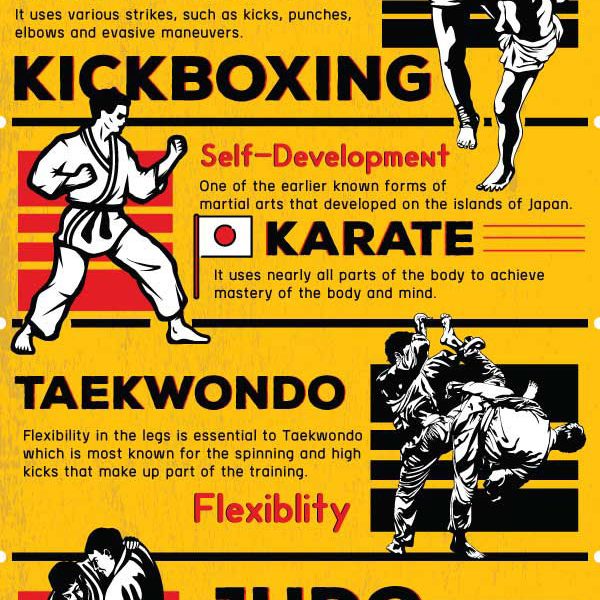The Significance Of Adaptability In Martial Arts Training
The Significance Of Adaptability In Martial Arts Training
Blog Article
Post Composed By-Young Roy
Did you know that adaptability plays an essential duty in martial arts training?
In fact, a research study carried out by the International Journal of Sports Physical Therapy exposed that over 80% of martial musicians struggle with limited adaptability.
But why is versatility so crucial? Well, it not only enhances your efficiency and method but likewise lowers the risk of injuries.
So, if you're seeking to take your martial arts skills to the following degree and stay injury-free, you'll absolutely intend to maintain reading.
Benefits of Adaptability in Martial Arts
Versatility in fighting styles brings various benefits to professionals, permitting you to improve your efficiency and reduce the threat of injury. By enhancing your versatility, you increase your range of movement, allowing you to perform strategies with greater precision and performance.
This improved agility and fluidity in your activities can offer you an one-upmanship, permitting you to react quicker and adjust to different circumstances throughout sparring or competitors. Additionally, boosted versatility aids to stop injuries by improving muscle mass elasticity and joint flexibility.
It allows your body to move extra openly, lowering the stress on your muscles and ligaments. Read More In this article , in turn, lessens the opportunities of sprains, strains, and muscular tissue pulls. By integrating adaptability training into your fighting styles practice, you not just enhance your efficiency but likewise guard your physical well-being.
Techniques to Improve Versatility
To boost your versatility in martial arts, you can include various stretching exercises right into your training regimen.
One efficient technique is dynamic stretching, which includes relocating with a complete range of activity to heat up your muscular tissues and increase flexibility. Instances include leg swings, arm circles, and trunk turnings.
One more method is static stretching, where you hold a go for a sustained amount of time. This aids extend and unwind your muscular tissues, improving flexibility gradually. Common fixed stretches for fighting styles consist of the butterfly stretch, hamstring stretch, and shoulder stretch.
Additionally, incorporating yoga exercise or Pilates right into your training can also considerably improve your flexibility.
Bear in mind to constantly heat up before stretching and pay attention to your body to prevent injury.
Flexibility Training for All Skill Levels
As you advance in your fighting styles training, improving your flexibility becomes necessary for boosting your overall efficiency. https://griffinqaiqz.bloggosite.com/40767071/start-your-course-in-the-direction-of-ending-up-being-skillful-in-protection-by-comprehending-the-complicated-connection-between-worry-and-empowerment isn't just valuable for advanced experts yet likewise for beginners and intermediate students.
Regardless of your ability level, incorporating versatility workouts into your training regimen will certainly help you establish a wide range of movement, avoid injuries, and boost your technique implementation.
For newbies, flexibility training can aid boost your type and pose, enabling you to do activities correctly and successfully. Intermediate professionals can utilize versatility training to additional enhance their series of movement and boost their fluidness in implementing facility techniques. Advanced trainees can take advantage of versatility training by preserving and improving their existing adaptability, enabling them to do sophisticated actions effortlessly.
Final thought
To conclude, embracing adaptability in your martial arts training is vital. By including techniques to improve adaptability, you can improve your performance and protect against injuries.
Bear in mind, 'An adaptable body is a resistant body.' So, keep pushing your restrictions, stretching frequently, and profit of a flexible and active physique.
